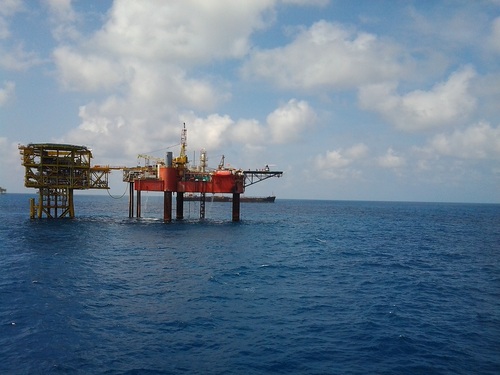Une opportunité pour les grandes banques françaises
Le projet gazier Mozambique LNG, géré par Total, représente un investissement de 23 milliards de dollars. C’est le plus important investissement financier privé qui ait jamais été réalisé en Afrique, dans un des pays les plus pauvres du monde.
Sur ces 23 milliards de dollars, 16 milliards seront financés par des prêts bancaires. Les quatre grandes banques françaises que sont BNP Paribas, Société Générale, Crédit Agricole et Natixis n’ont pas souhaité passer à côté de cette manne financière que représente le gaz du Mozambique.
Ainsi Société Générale, qui est le conseiller financier de Total sur le projet Mozambique LNG, a pour mission de réunir, selon l’agence Bloomberg, une vingtaine de financeurs. Pour autant, le groupe a déclaré au journal Les Echos ne pas en faire partie à ce jour.
Selon l’ONG Les Amis de la Terre, une organisation de protection de l’homme et de l’environnement qui mène une enquête sur ces projets gaziers, Société Générale aurait par ailleurs été mandatée par l’État du Mozambique pour assurer le financement de ses parts dans ce projet.
Crédit Agricole fait en revanche bien partie de la liste des financeurs : le prêt accordé serait de plusieurs centaines de millions de dollars. En ce qui concerne Natixis et BNP Paribas, elles n’ont pas pris part au projet Mozambique LNG, mais ont tout de même financé Coral South FNLG, un autre projet gazier du Mozambique géré par le groupe pétrolier italien ENI. Société Générale et Crédit Agricole ont également investi dans ce projet.
Des projets gaziers très contestés
De nombreuses ONG s’opposent à ces projets gaziers, tout d’abord en raison de leur impact environnemental. Selon Les Amis de la Terre, les trois projets actuellement en cours pourraient émettre l’équivalent de 7 années d’émissions françaises de gaz à effet de serre. Ces projets présentent également un risque pour la biodiversité marine en raison de la pollution sonore provoquée par les forages.
Les conséquences humaines immédiates ne sont pas moins lourdes. Ainsi, 556 familles ont déjà été déplacées de leurs villages et privées de leurs moyens de subsistance pour faire place aux projets de Total et de ENI. Des familles de pêcheurs ont été relogées très loin du littoral et des familles de cultivateurs se sont vues attribuer des terres situées à plus de 20 km de leur domicile. De plus, selon Cécile Marchand, chargée de campagne de l’ONG Les Amis de la Terre, « ces déplacements de populations exacerbent des tensions ethniques et religieuses déjà existantes ».
Par ailleurs, les projets gaziers Mozambique LNG et Coral South FNLG se déroulent dans la région de Cabo Delgado, dans laquelle a lieu une insurrection islamiste menée par des groupes de djihadistes. D’après Les Amis de la Terre, ces projets gaziers attisent les tensions, notamment via la militarisation de la zone et le déploiement de compagnies de sécurité privées. 8 ouvriers d’une entreprise de BTP ont été tués fin juin dans une attaque. Selon Total, ils ne travaillaient pas sur le projet gazier, mais Les Amis de la Terre affirment qu’ils étaient employés par un sous-traitant de Total.
Le site de Total devrait être opérationnel en 2024.
